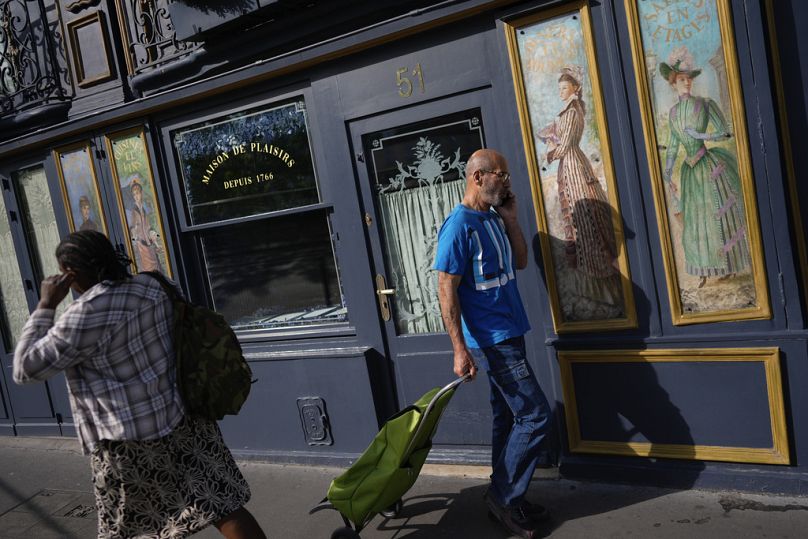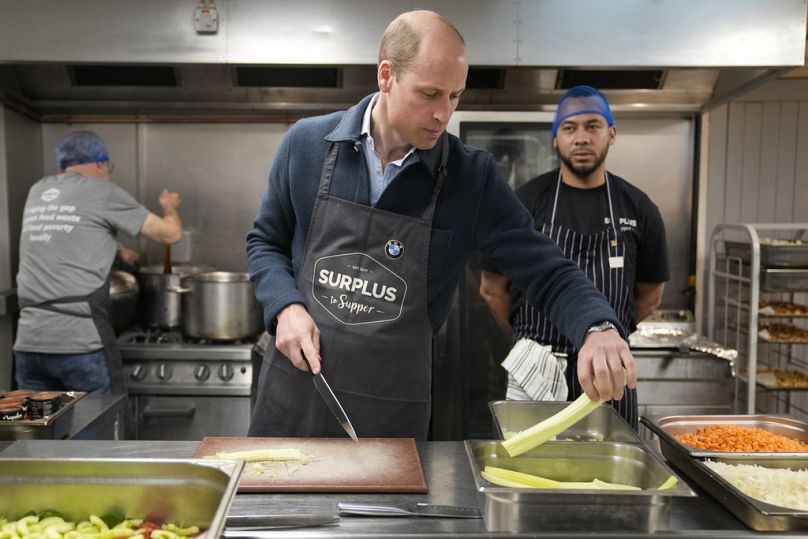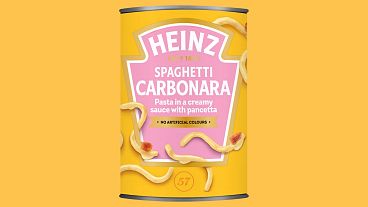This year's Olympics have the potential to revolutionise the way we handle food surplus, Massimo Bottura writes.
The 2024 Olympics are just beginning, and it will be spectacular.
Along with the timeless beauty of the host city, Paris, and the ambition of more than 10,000 athletes, its organisers aim to set new standards for sustainability, circularity and waste reduction.
For food waste reduction, that ambition is at least as noble as that of the athletes attempting to break records this year. One billion tonnes of food is wasted every year.
Households alone waste more than one billion meals every day in a world where one in 10 people is affected by hunger.
As someone who loves food and people, I find that waste at this scale unacceptable.
We need to use food to its full potential
The Paris Olympics are an opportunity to act. At the 2016 Rio de Janeiro Olympics, I was shocked to learn that unused fruit and vegetables were sent off to be burned because it was more expensive to distribute them to those in need.
My wife and I launched “Food for Soul” to collect this surplus food and show their potential in the preparation of tasty and healthy meals served with hospitality to people experiencing social vulnerability.
It began as a culture project to raise awareness of food waste and social isolation, with the ultimate aim of shifting the way we care for people and the planet.
The 2024 Olympics organisers recognise the issue and are committed to working with associations that will pick up and redistribute food surplus, as well as adapt recipes to maximise their full use and right size food portions.
The 2024 Paris Food Vision plan is dedicated to 100% recovery of non-consumed food resources.
If plans are implemented, it could be a great step forward: the anticipated baseline report on the food waste generated by the anticipated 13 million meals served during the Olympics could inform and improve practices at future Olympic Games in Milan, LA and Brisbane.
If the industrial era created unprecedented abundance by revolutionising food production, the 21st century needs a new revolution in food consumption to halve food waste by 2030.
According to this year's UN Environment Programme’s (UNEP) Food Waste Index, a third of humanity faces food insecurity, while an equivalent of one billion meals go to waste every day.
As we move away from traditional practices of rural life, we now waste more and more in cities. Instead of communal cooking and dining, we increasingly eat alone.
With billions watching live in Paris and at home, the Olympics offers a great opportunity to spread consumer awareness about the effects of food waste on the environment and the simple actions people can take during the games and — more importantly — when they return home.
After all, home is where food is wasted more than anywhere else, as UNEP confirms.
This means buying and storing food responsibly and using leftovers creatively. People are often surprised to learn how easy it is to store and transform everyday foods such as celery leaves, bread crumbs, overripe fruits, and Parmigiano rinds into wonderful broths, ice creams, traditional sauces, and snacks.
Shop smart, waste less
Greater public awareness could also motivate governments to act. Though only a handful of countries have included food loss and waste reduction in their national climate plans, when governments do act, the results are impressive.
In just a few years, the UK and Japan reduced their food waste by between 20% and 30%. China’s Clean Plate campaign targeted both food waste and food insecurity.
Brazil is measuring food waste and developing new national strategies for food loss and waste reduction. In my own country, Italy, a law uses tax rebates as an incentive for food donations about to be wasted.
I have been in this industry for over four decades, and my motto applies to restaurants, retailers, and households: shop smart, waste less. Buying seasonal, local and sustainable ingredients is the first step to healthier meals to reduce food waste.
Cooking from what is in the pantry and emptying the refrigerator before buying more are simple steps to reducing food waste at home.
The dividends for revolutionising our food loss and waste system would be no less exciting than any of the 329 gold medals to be won in the Paris Olympics: It can slash up to 10% of global greenhouse gas emissions and support biodiversity. It would save water, reduce poverty and help economies grow.
By implementing a system to ensure 100% of food is not wasted but monitored and measured — with insights shared — the Paris Olympics can set a new standard for food waste reduction. It can also encourage countless other events, like conferences, competitions, or concerts, to bring this challenge to the forefront of our priorities.
Massimo Bottura is a renowned Italian chef, a co-founder of Food for Soul, and a Goodwill Ambassador for the UN Environment Programme (UNEP).
At Euronews, we believe all views matter. Contact us at view@euronews.com to send pitches or submissions and be part of the conversation.

















